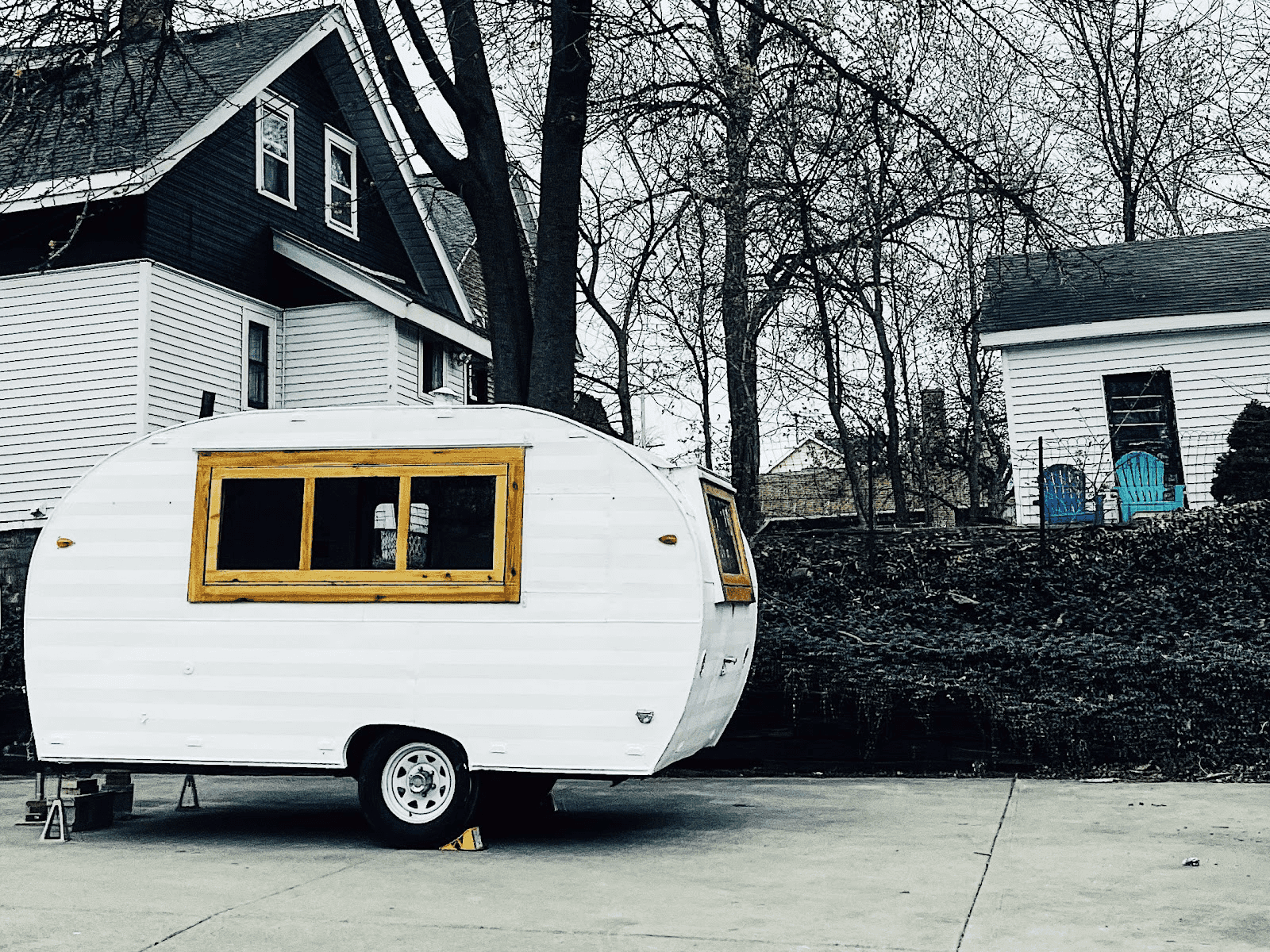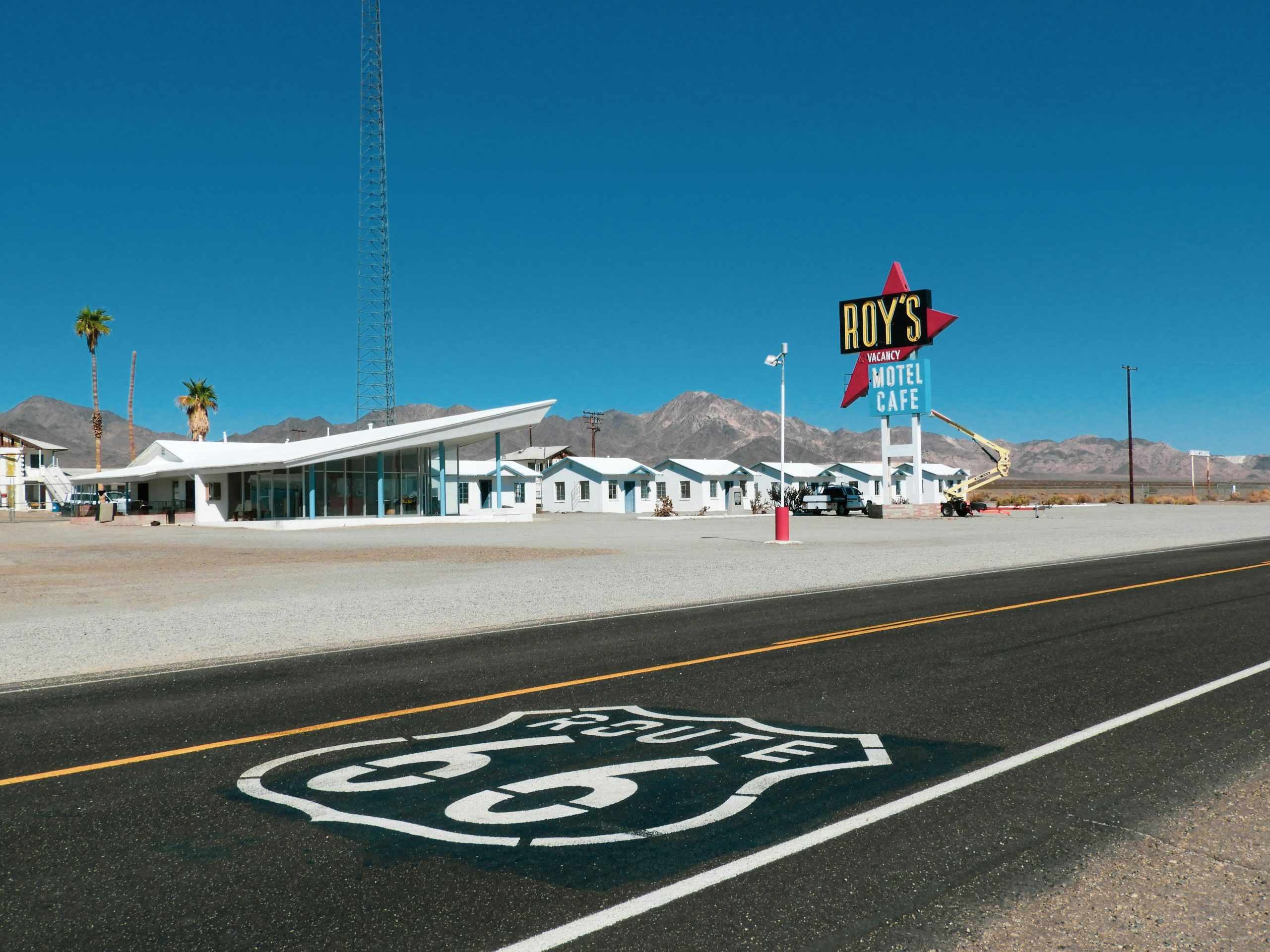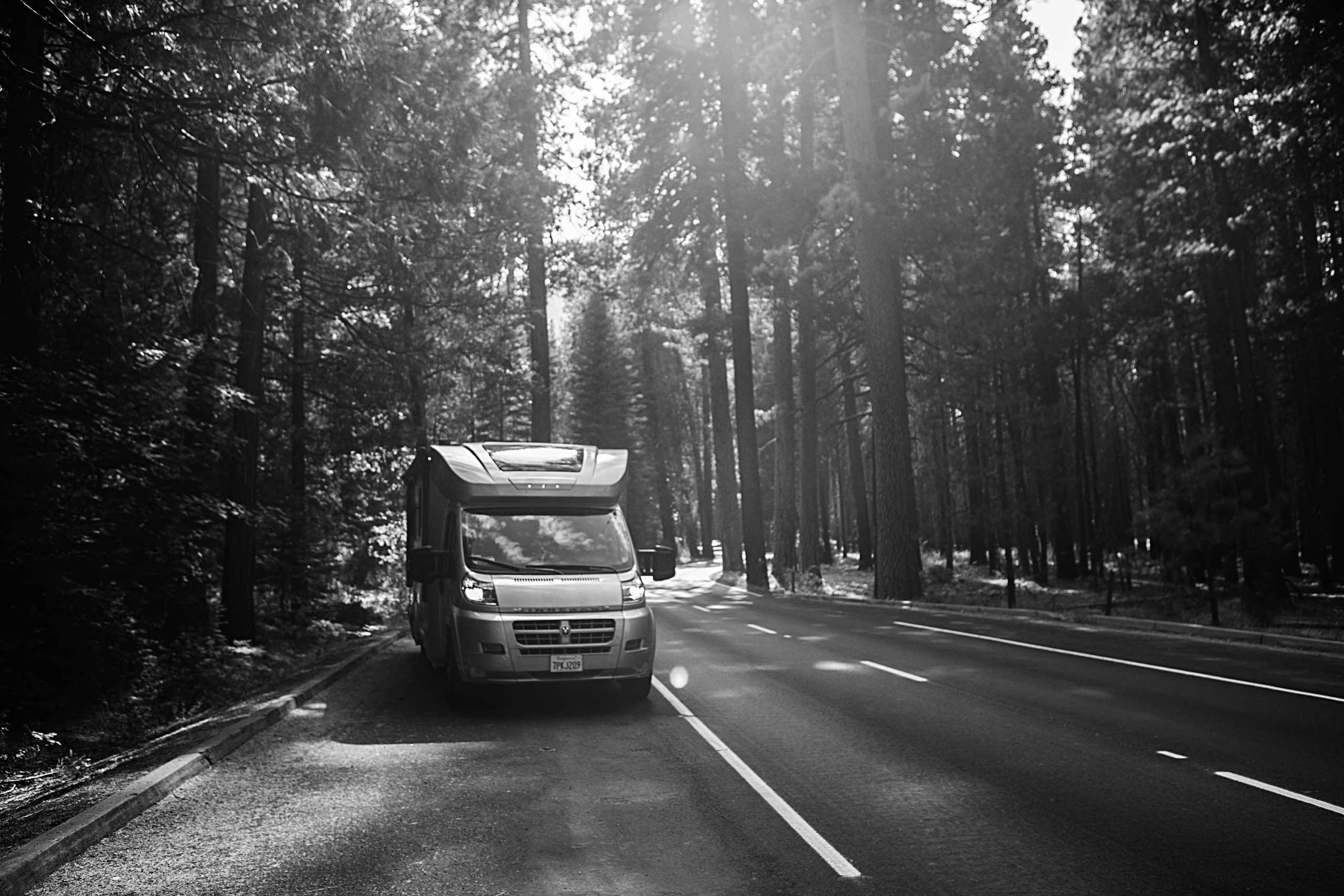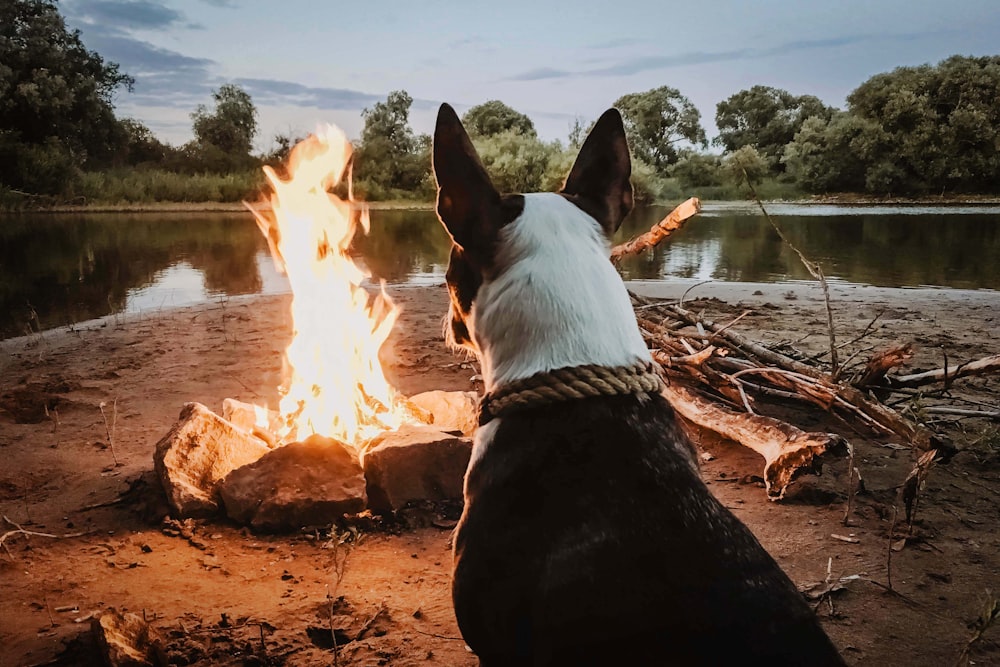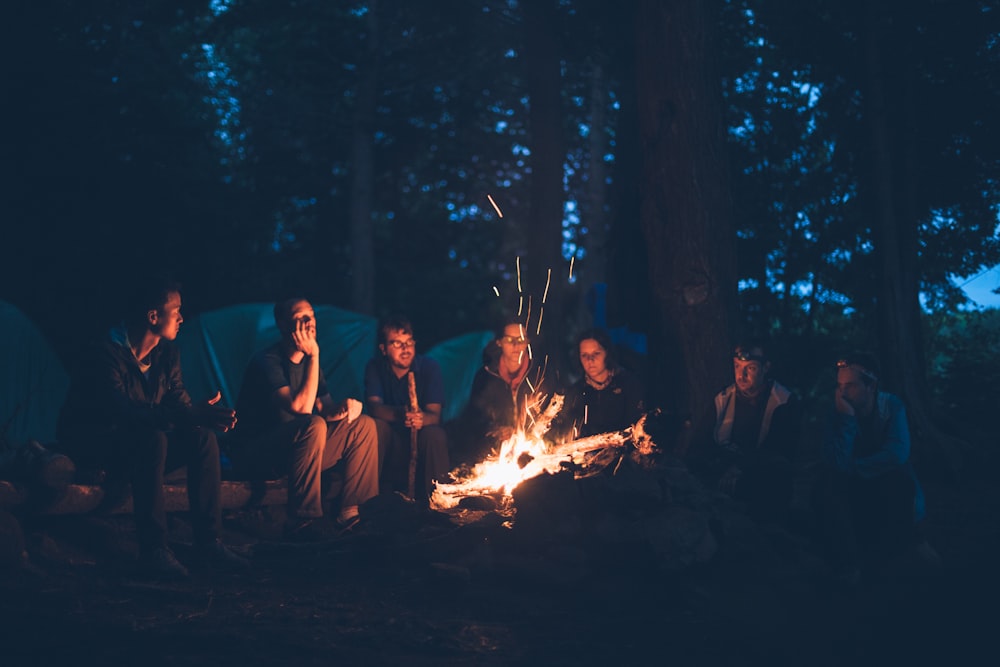Staying at a campground is a fun experience— but it can also be a nightmare if you’re surrounded by inconsiderate campers. Campground respect is a two-way street, and you should always treat your neighbors as you would want to be treated. If you’ve never been camping before or aren’t familiar with basic campground etiquette, now’s your time to brush up on the rules.
These thirteen rules are ones to live by when on the road. They’ll ensure you don’t disturb your neighbors, making everyone a happy camper.
13 Campground Etiquette Rules to Live By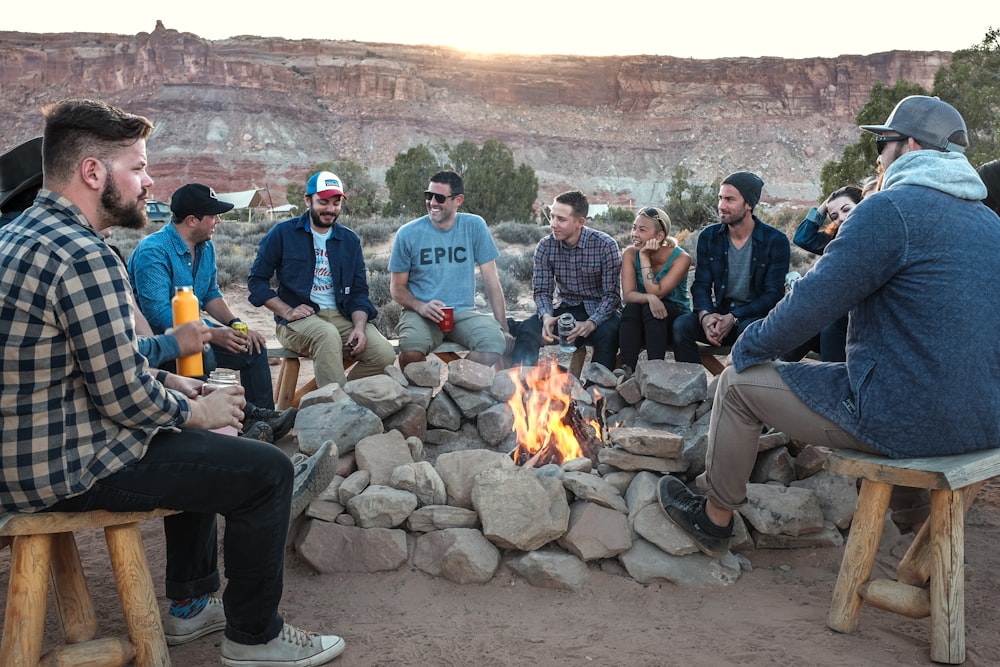
1. Keep Your Volume at a Minimum
Camping is a great way to enjoy the peace and quiet of the great outdoors. While some people prefer to hit the trail, others just like to lounge by their campsite. A relaxing day can turn into a cacophonous mess if you’re by an unruly and loud campsite. While you are certainly free to have fun and talk, remember to be respectful by doing the following.
- Keep voices and music to a low volume. Be in tune with your kids of both the four-legged and 2-legged variety. If volume is getting out of hand, gently remind your group that others are around. This goes for inside too; RV and camper walls are thin.
- Keep your pet calm if unattended. If you leave Fido alone in your RV, make certain he isn’t going to bark his poor little head off because he misses you. Close the shades, turn on the tv to distract outdoor sounds, provide a full dish of water and vittles and make him comfortable.
- Don’t slam doors. Just because they are called “slam latches” doesn’t mean you should. Close your doors as quietly as possible.
- Don’t use your car horn or honking features. Lastly, please use good etiquette by not using your vehicle key fob button to lock your vehicle. This often triggers a horn honk. Also, when your key fob is in your pocket, be mindful to not accidentally activate your car alarm button.
By following these four tips, you can reduce your noise impact significantly. No one will even know you’re there!
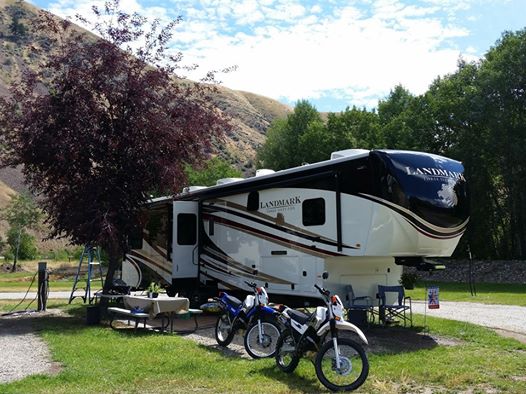
2. Start Your Engines Quietly
If you have motorized toys such as RZR’s, motorcycles, ATV’s, etc., please idle engines only for a minute or two to warm them up. Not only is the sound nauseating, but so are those exhaust fumes. Good etiquette dictates not to idle or rev them during quiet hours. If your toys need to idle longer, consider it good etiquette by taking them down to the end of the campground entrance.
3. Be Mindful of When You Arrive and Depart
This coincides with the noise posts above. Consider making your own rule to check-out no earlier 8:00 AM and check-in no later 8:00 PM. If you do arrive or depart during quiet hours (typically 10:00 pm-8:00 am), try to do it quickly. You’ll also have happier neighbors if you wait to set up until the morning after or pack up the day before. Doing things like allowing your RV or vehicle engines to run more than a few minutes in the morning will score no points or beverage offerings from your neighbors.
Also, RV parks and campgrounds have arrival and departure times for a reason. Don’t linger at your campsite longer than you should and make incoming RVers or campers who have reservations wait for their site. Rules usually dictate not to arrive before check-in time, unless you’ve made prior arrangements with the campground staff.
4. Scoop the Poop
This is probably “the” most grating complaint, not only from campground owners, but other RVers as well. When taking Fifi for her dutiful walk, always bring your poop bags with you. It is unsanitary and messy if you just leave it, and just plain bad etiquette. Don’t walk away from it thinking others won’t notice. Try to use specified pet areas, but if your pet can’t wait, scoop the poop!
Pro tip: Buy a poop bag dispenser that attaches to the leash so you’ll always have bags with you.
5. Leash Your Dogs
Speaking of pooping dogs on leashes, did you know that, in most states, its unlawful to have your dogs unleashed outside? Campgrounds and RV parks adhere to that rule not only for you and your own pet’s safety, but also for their own liability. Even if you’ve trained your dog on voice command, you still need to leash your dog. Cat owners need to follow leash laws and etiquette also.
Never leave pets unattended outside. It’s unsafe for them.
Be respectful when you use retractable leashes by keeping their reigns short. Keep in mind that not everyone will like your dog or cat. Some folks may be allergic, some may be scared of the animal. Be a responsible pet owner by having good pet etiquette. YouTube account Endless RVing feels so strongly about campground etiquette for dogs, that they made a whole video about it! Check it out below.
6. Secure Your Gear When Unattended
Stow and secure your outdoor gear, especially if you leave for the day or before turning in for the night. Unexpected storms can pop up turning your campsite into a windstorm’s dream. Camp chairs, canopies, toys, and outdoor gear can become projectiles that can damage property or injure people.
On a similar note, no one wants to park next to the site that looks like a bad yard sale. Keep your site picked up and tidy.
7. Don’t Cut Through Other Campsites
RVers get quite possessive of their campsite space. When campers pay their site fees, it’s “theirs” for the duration. Site cutting is invasive, intrusive, and disruptive to nappers, pet owners, meal times, quiet campfires, etc. A site is from utility box to utility box. Don’t be that lazy guy. Use footpaths or roads to traverse around the campground or park.
On the flipside, parking vehicles that protrude into the roadway make it difficult for others to navigate or park. Keep in mind that emergency vehicles require necessary passage. Do not park your vehicles in another’s site or box other vehicles in.
8. Don’t Speed Through the Park
A speed limit is just that— a limit. Don’t go over the posted number. You follow the speed limits on the freeways, and you can follow them in a campground, too. Campgrounds are busy with campers walking their dogs, children chasing balls, bike riders, and RVs pulling in or out of their site. For the safety of you and those around you, please slow down.
9. Keep Your Lights Dim
Keep in mind that campers enjoy relaxing at campgrounds because it gets them away from the hustle-bustle and bright city lights. Some enjoy stargazing while others simply want to enjoy the glow of campfires. It’s a campground, not a carnival.
Nobody appreciates lights beaming through their shades after hours. It’s okay to leave a small porch light on after hours in case you need to let Fido out or visit the restroom. However, turn off your Las Vegas light show and outdoor lights after hours. It’s also good campground etiquette to dim the high beams on your vehicle when driving through the campgrounds. No one appreciates being blinded while on their evening walks or having lights blasted through RV windows.
Pro Tip: Use portable solar sidewalk lights for marking perimeters or entrances to your RV.
10. Choke the Smoke
Please don’t allow your campfires to continually smolder and smoke, releasing toxins that will make your neighbors ill. Campfire pits are not trash receptacles. Coated paper plates and plastics give off toxic fumes when burned. Do not burn trash, period!
Regarding another type of smoke, if you’re a tobacco user, be mindful of tight campsites. Tobacco smoke may be entering other RVer’s windows or doors.
Speaking of tobacco smoking, we recommend field stripping your finished cigarette butts and putting them in your pocket instead of in the campfire or tossing them on the ground. Not only is it unsightly, but wildlife get ill when they eat them while foraging.
11. Be Neighborly
Campground etiquette is more than just preventing annoyances. It’s also about reaching out to help others. There may come a time when your neighbor may need help changing a tire or fixing an RV component. Help them if you’ve got the know-how or a strong back. If you see your elderly neighbor struggling with bags of groceries, offer a hand. If a child falls and is crying, ask which RV they live in and either walk him to his camper or get his parent.
12. Know When to Make Small Talk
There’s nothing worse than having a mishap because your attention has been diverted to a conversation. Please curtail small talk or distractions while other RVers are setting up or taking down their campsite or hitching or unhitching. It’s also best not to disturb RVers who are emptying and flushing their tanks. Timing is of the essence in this chore. If you distract your neighbor while they’re emptying or flushing the black tank, you both can end up in deep doo-doo.
Also, if you’re neighbor’s shades are drawn, please don’t knock on their door or be loud around their RV. They may be sleeping or working from their RV. They also could be away with their dogs resting quietly inside.
13. Leave It Better Than You Found It
This is perhaps the most important piece of campground etiquette. There’s nothing worse than arriving at a site that’s littered with cigarette butts, candy wrappers, bottle caps, pull tabs, or trash in the fire pit. And just because you may have been assigned a dirty site, doesn’t mean you should leave it the same way.
Keep your outdoor trash receptacles secured and closed. A simple burst of wind will send paper plates, napkins, and other trash airborne. If it does, please retrieve all trash. Don’t think “it went into the woods, no one will notice”. Our wildlife need and deserve clean habitats. Show your children where the trash receptacles are and teach them good trash discipline.
Also, be sure to clean out your fire pits prior to leaving. Please don’t leave this for the camp host or campground staff to clean.
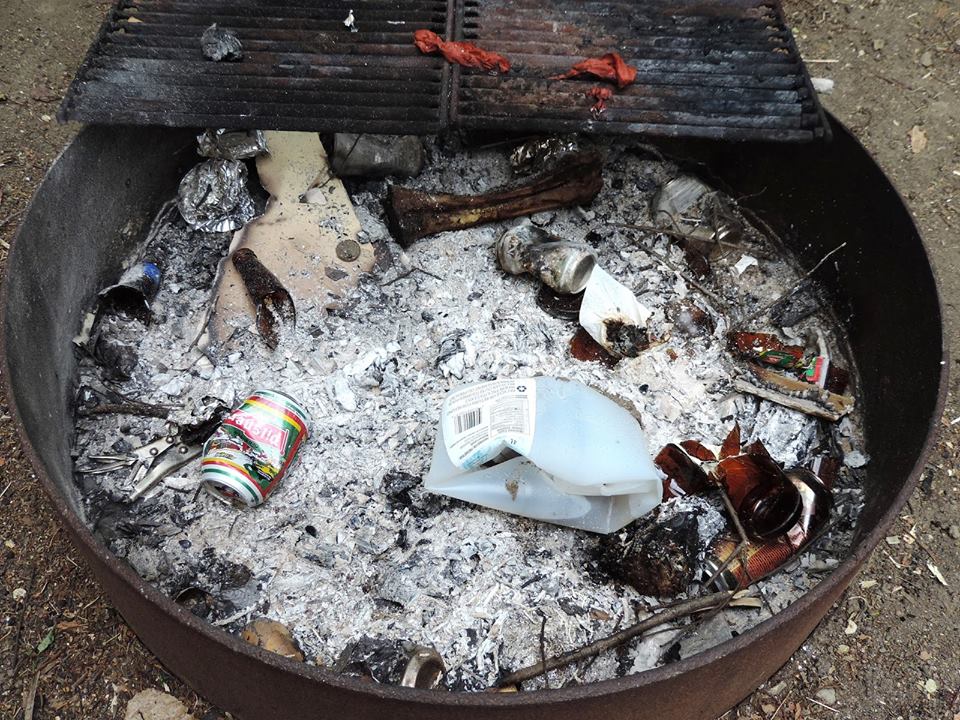
Be good stewards. Clean and patrol your site before leaving. If you brought it, take it with you. Leave only your footprints.
Have Fun the Respectful Way
The main rule of thumb of RV park or campground etiquette is to treat others as you’d like to be treated. Sometimes, people don’t know or may not be aware that their behavior or infractions affect others. Be respectful to the campground or RV park, your neighbors, area wildlife, and yourselves.
